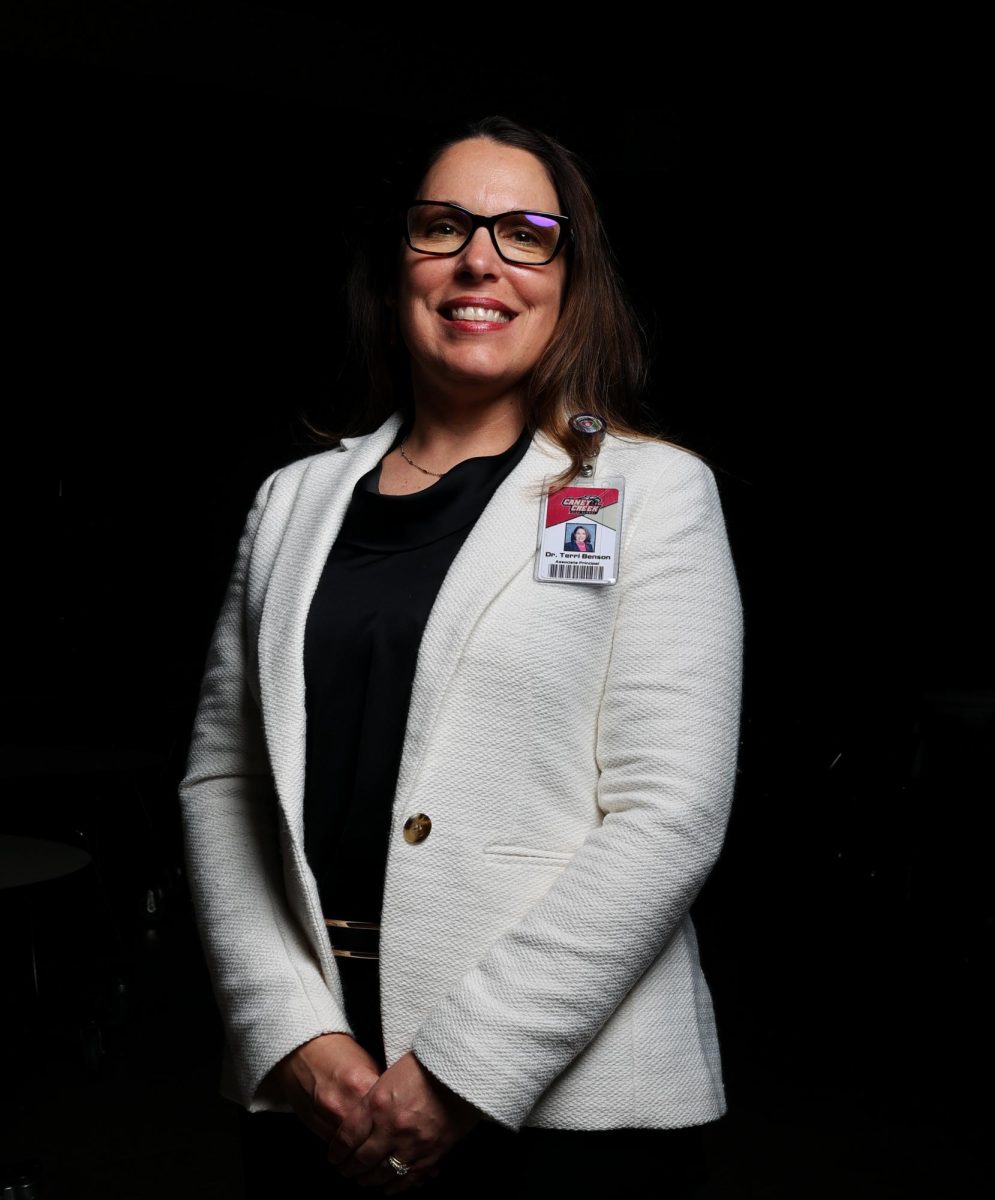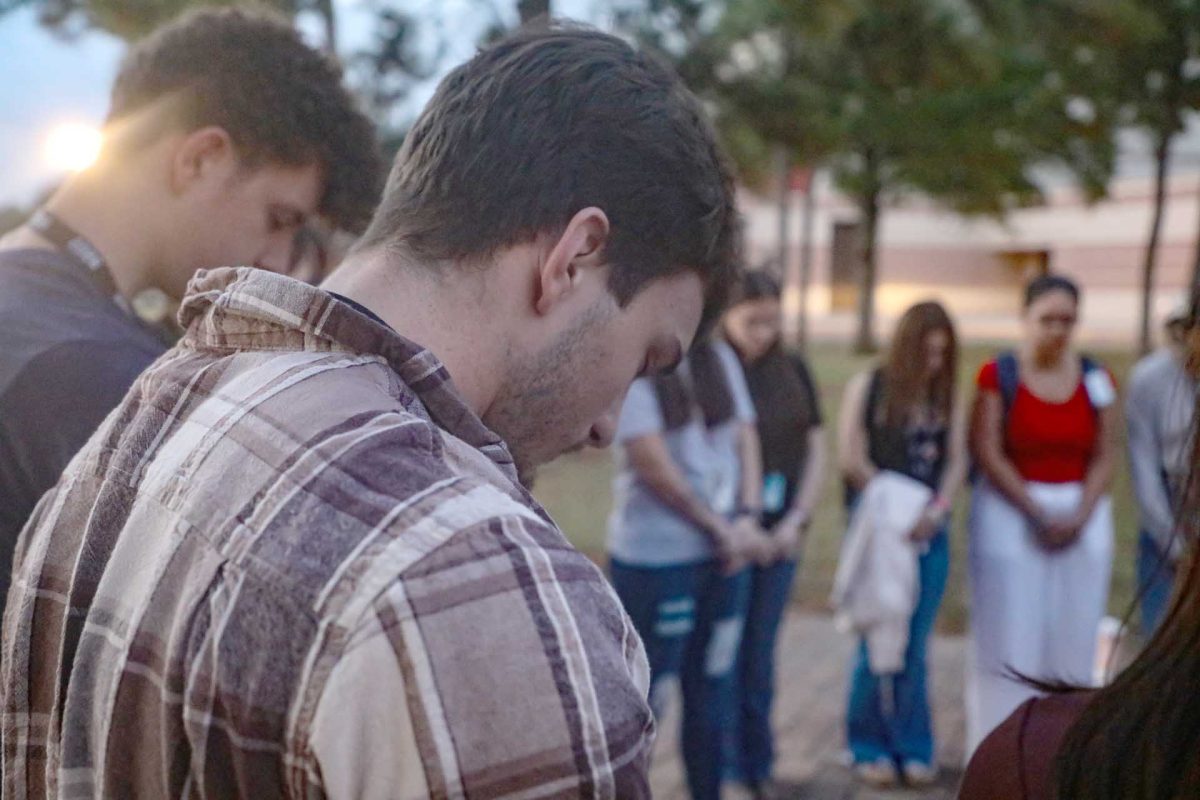With Principal Dr. Terri Benson’s introduction to the school, there have been various changes done to the previous exemption policy.
Benson found that students who experienced the previous relaxed exemption policy of having passing grades and less than 10 absences had a diminished work ethic because they lost the ability to take a cumulative test, or finals.
“The faculty felt like we were setting students up for failure in life because we weren’t expecting them to take a cumulative final exam,” Benson said.
In the school’s new exemption policy, seniors must have either a 90 average with 0-4 absences per semester or an 80 average with a maximum of three absences per semester and can exempt both fall and spring semesters. Juniors, sophomores, and freshmen can only exempt the spring semester, but all requirements must be met otherwise.
“I do believe that there’s a direct correlation between attendance and success in school,” government teacher Kelly Castleberry said. “So I understand the attendance requirement because it’s a huge indicator of how the students are going to do academically.”
Both excused and unexcused absences are taken into account unless it’s considered a healthcare appointment (HPC), doctor’s note (DOC), funeral (FRL), emergency conditions (EC), field trip (FT), religious holiday (REL), and college visit (CV). Students must also not have less than 10 tardies, all fines and fees must be paid to be cleared. Any student who served ISS or OSS in the spring semester will not be eligible, as well as those who served DAEP or JJAEP during the school year.
“I do think if you’ve worked really hard and you’ve taken your study seriously, and you’ve already proven that you know the content, there’s no sense in giving you an additional exam when you’ve already done it throughout the semester,” Castleberry said. “But those who struggle a bit can take the opportunity to solidify what they know.”
This policy was designed to “better meet the needs of Caney Creek students” according to Benson.
“Because each of our high schools have a different student body and different expectations of that student body, different exemption policies look a little different on each campus,” Benson said.
The purpose is to prepare students for cumulative exams outside of high school, and encourage them to develop the study habits of someone who “outperforms,” or someone who can meet high expectations.
“We have to sit students for a cumulative exam to get them exposed to what you will have to do in this life.” Benson said. “A cumulative exam is a test in which all material learned throughout the course is presented back to the student in test format as a form of review, and to quiz the students’ knowledge.”
High expectations can be too high though, according to senior Aurora Moss. She believes that the expectations of the new exemption policy are too hard to meet with extracurricular activities and the stress of school, as well as their home lives.
“I have good grades but still can’t be exempt,” Moss said. “ It just seems kind of stupid to me, I mean, if we’ve already passed the class, why take a test?”
Students feel that the policy shows how expectations are becoming more strict.
“It seems like things are just getting more and more strict, and honestly, I like the policy from last year,” Moss said.
Some teachers, like Castleberry, don’t mind the new policy requirements.
“I think that adults bubblewrap you all too much,” Castleberry said. “We’ve protected you from so much that we haven’t given you the opportunities to fail.”
Despite differing opinions though, the new exemption policy isn’t going to be changed anytime soon.
“When I look at seniors, I feel like seniors should be able to exempt all classes,” Benson said. “It’s a senior privilege as long as you’re passing, the key is a semester average of a 90 or greater with four or fewer absences. If I can make an A average with the first and second nine weeks in that semester class, right then, and I have four fewer absences, and I’m not tardy, I should be able to be exempt. I don’t think that needs to be changed.” This goes for all students though, not just seniors.
“It (exemption) is an opportunity for teachers to reteach a little bit so that the students can really, truly have a handle on what the content is, the concepts, and why it’s important,” Castleberry said.
With these changes, Benson has concerns regarding students and parents’ reactions to the change, because there hasn’t been a reaction at all.
“I don’t believe that the students are paying attention to the new policy,” Benson said. “I don’t believe the parents are reading the new policy, we’ve sent it home, we’ve sent it in emails, we’ve communicated through School Messenger. The teachers went over it the first two days of school. It’s supposed to be posted in the classrooms. No one is asking questions, it concerns me.”











